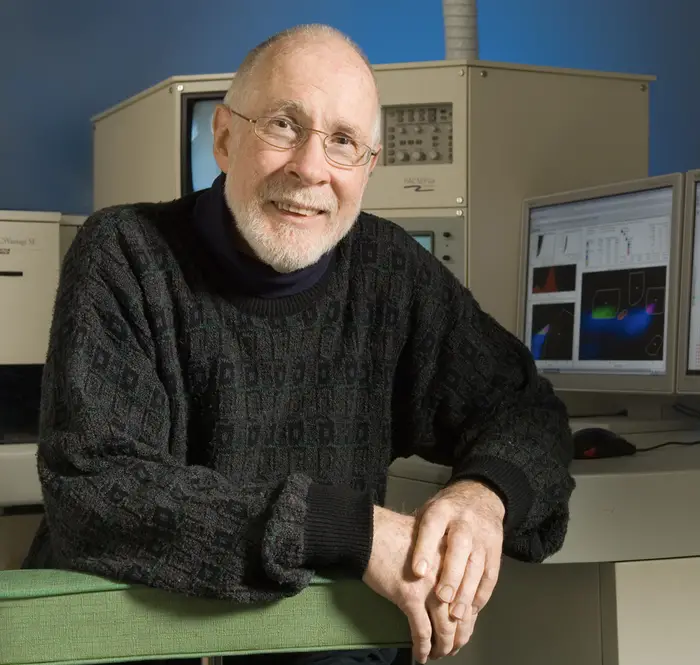Remembering Alan Waggoner
Media Inquiries
Alan Waggoner, emeritus professor of biological sciences(opens in new window) at Carnegie Mellon University, died peacefully at home surrounded by family on Tuesday, May 21, 2024. He was 82 years old.
Waggoner, the former Maxwell H. and Gloria C. Connan Professor in the Life Sciences, helped transform the fields of biomedical research and cell biology through his development of fluorescent probes that have allowed scientists to delve into the mysteries hidden inside cells. A brilliant scientist, Waggoner invented cyanine-based dyes called CyDyes, which are used to detect macromolecules like proteins and nucleic acids in cells and tissues. His dyes have greatly contributed to our understanding of how gene and cellular functions are regulated.
Born in Los Angeles in 1942, he graduated from the University of Colorado in 1965 and earned his Ph.D. in chemistry in 1969 at the University of Oregon. After completing postdoctoral work at Yale University, Waggoner taught at Amherst College where he served as chairman of the Department of Chemistry until 1982 when he joined the Carnegie Mellon faculty.
He left Carnegie Mellon in 1992 to become vice chairman of Biological Detection Systems, Inc., a Pittsburgh start-up company that sold microscope imagining systems and fluorescent labeling reagents developed at the university. In 1994, the startup was bought by Amersham PLC and Waggoner joined Amersham as principal scientist and head of fluorescence.
In 1999, Waggoner returned to Carnegie Mellon as the director of the Molecular Biosensor and Imaging Center(opens in new window) (MBIC). Under his leadership, MBIC became world renowned for its expertise in biochemistry, genetics, dye chemistry and imaging.
When he retired from teaching in 2018, Waggoner continued to teach courses at the Osher Lifelong Learning Institute(opens in new window) on the beginning of the universe and the origins of life. He also created Sharp Edge Labs, a spin-off company he started with the late biological sciences and chemistry professor Marcel Bruchez and chemistry alumnus Scott Sneddon. The company uses biosensors developed at MBIC to identify new drugs to treat diseases caused by defects in protein trafficking.
Waggoner is the holder of 27 patents and the recipient of numerous awards in recognition of his fundamental contributions to the development of fluorescent-based detection systems for biology and biotechnology, which have advanced research worldwide. In 2010, Waggoner received the International Society for the Advancement of Flow Cytometry's distinguished service award for his significant contributions to both the advancement of flow cytometry and to the society.
Waggoner is survived by his wife of 58 years, Karen, and by children Shemariah Little (Waggoner) and Eben Waggoner, grandchildren Melina and Marc Little, and sisters Diana Davies and Teri Nebeker, and of course his beloved cats, Junior and Minnie.
Friends will be received Thursday, May 30, from 11 a.m. to 1 p.m., followed by a service at John A. Freyvogel Sons, Inc. 4900 Centre Ave. at Devonshire Street, Pittsburgh, PA, 15213.
In Memoriam
In lieu of flowers the family requests contributions be made to either:
- Hôspital Albert Schweitzer
P.O. Box 110091, Pittsburgh, Pennsylvania, 15232 - Pennsylvania Organization for Women in Early Recovery
907 West St., Second Floor, Pittsburgh PA 15221.
